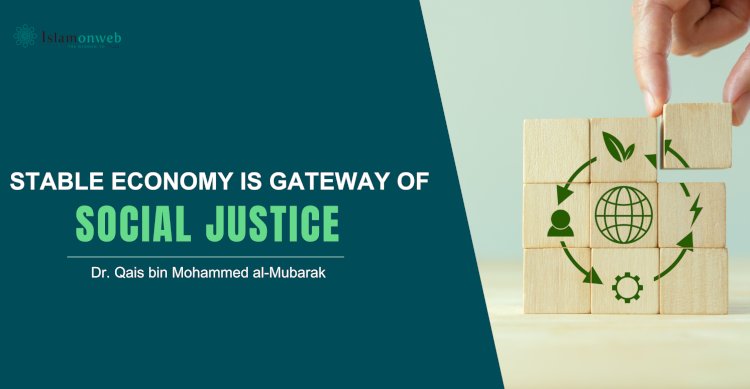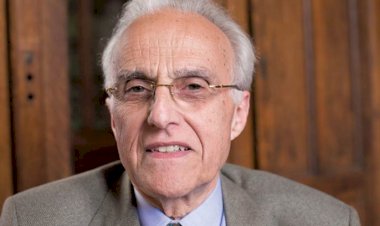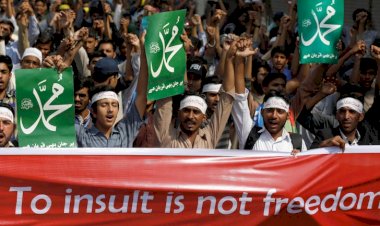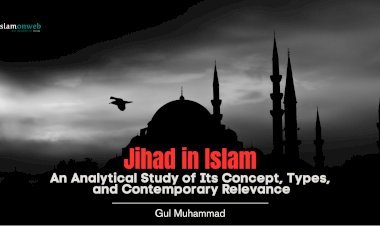Stable Economy is Gateway of Social Justice
Islam considers job, work, employment and other efforts for meeting worldly needs among highly meritorious activities. In order to foster a culture of cultivation of earth and accumulation of wealth, Allah granted for people the ‘right of ownership’.
There are two types of transactions, which are:
- Make use of natural resources, for example fishing or hunting.
- Exchange and transfer among people with and without compensation in return.
Exchange of materials or services with payment is generally called trade. Islam considers all businesses and trades as legal and valid as long as they do not cause cheating or lead them to disputes by having ambiguity about the price or quality of commodity.
As far as Islam is concerned, it emphasizes on achieving four goals in financial transactions and their trades.
1. The first goal is stability of wealth and property (thabāt), which means protection of wealth and property in hands of owners and they do not fear loss or its transfer to other party without a valid contract or right. That is the reason why Islam gives top priority for mutual consent and satisfaction in trade. Almighty Allah says: “O believers, do not consume one another's wealth unjustly but only [in lawful] business by mutual consent” (al-Nisa: 29). For the achievement of stability, Islam stipulates the fulfilment of contracts as a mandatory obligation. Allah says, “O believers, fulfil [all] contracts.” (al-Maidah: 1).
2. The second goal is transparency (wuḍūh), which is meant to avoid harm and disputes as much as possible. In order to achieve this goal, Islam stipulates the documentation, pledges and witnesses as part of transaction. In the documents, the contracting parties must scribe all relevant specifications in order to regulate the wordings, statements and conditions of contract; these details sometimes become important for judge to issue a verdict if the parties disagree each other later. Imam Malik said, “The agreements must be written by a knowledgeable person who is pious and trustworthy.”
3. The third goal is marketability and distribution of wealth (rawāj). Islam urges for fair circulation of wealth in the hands of people and its availability with an easy access as far as possible to people. This objective is achieved by promotion of marketability and prohibition of hoarding or exclusive occupation over the wealth; rather healthy competitions in financial activities thereby to flourishing the opportunities are welcomed. Islam prohibits the ‘exploitative commercial arbitrage’ (Talaqqi al-Rukban/silaʿ) in which a city-dweller purchases goods from a Bedouin (desert-dweller) at cheaper price before the latter gets into the market. It is an illegal practice because the public suffers from it given they are forced to buy the goods at expensive prices due to the above-mentioned illegal arbitrage. Likewise, the Prophet (s.a.w.) prohibited sale of city-dweller to Bedouin because the latter was largely exploited due to unawareness and ignorance about the market price. Umar Ibn al-Khattab said: “Someone who brings imported goods through great fatigue to himself in the summer and winter, such a person is the guest of Umar. Let him sell what Allah wills and keep what Allah wills.” This statement shows his appreciation for the efforts and hard work done by importers to make the goods reach to people who are in need of it.
4. The fourth goal is justice and equity (ʿadl). The justice in wealth is achieved by facilitating acquisition of wealth and property in trust-worthy and considerable methods excluding all the rooms of cheating, contractual ambiguities and oppression. The dealings comprised of deception and cheating (tadlis) are against the concept of justice. Allah says: “That you not transgress within the balance. And establish weight in justice and do not make deficient the balance” (al-Rahman: 8-9).
The second type of exchange is done without compensation in return. This category includes charity, gift and endowment. Main purpose of endowment is solidarity or mutual guarantee or cooperation among the individuals of society, particularly endorsed for taking care of people in their needy times. The companions of the Prophet (s.a.w.) were more enthusiastic in terms of giving endowments. Umar bin Abdul Aziz (r.a.) made endowment of hotels for travellers in which they can stay free of cost and get free medical treatment. Another famous endowment is waqf al-ṭurahā’, which was endowed for taking care of bedridden patients. Ibn Batuta, the famous traveller and scholar, mentioned what he had seen in Damascus about interesting types of activities using endowments.
Earlier generations made great endowments for educational purposes by building institutes and academies. Abbasid Caliph al-Mustansir billah endowed a great college in which religious and human sciences were taught, covering area of 5,000 square meters nearby Tigris River in Baghdad.
There should be more focus on spending money and endowments for educational institutions, schools, institutes and scientific research centres, which are essential for rise of civilizations and they are more important than the armies of war in the current world.
Thank you
About the author:
Dr. Qais bin Mohammed al-Mubarak is a Professor of Islamic Jurisprudence, at King Faisal University, Al-Ahsa.
Disclaimer
The views expressed in this article are the author’s own and do not necessarily mirror Islamonweb’s editorial stance.
























Leave A Comment